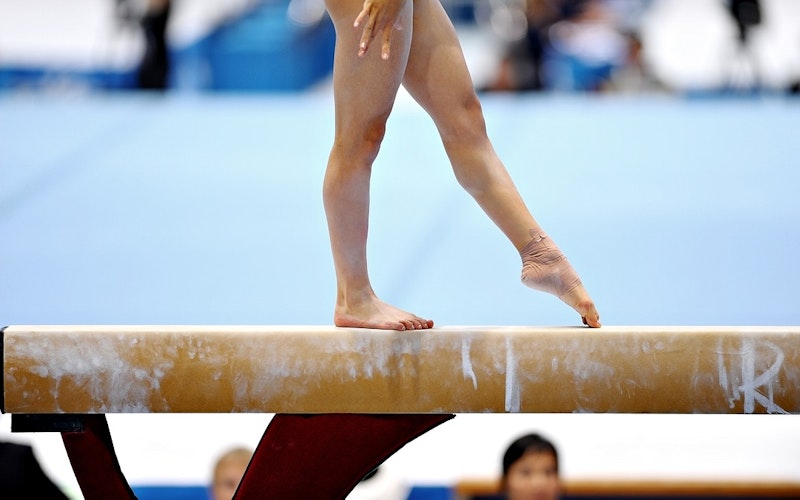
Culture At Large
The Imperfect Grace of Olympic Gymnasts
Like many others, I tuned in to the Rio Olympics earlier this week to watch the United States’ women’s gymnastics team win the gold medal in dominant fashion. Gymnastics is one of those sports that prompt the frequent use of the word “grace.” Announcers describe routines as being “done with such grace” or athletes as being “so graceful.” However, the grace we witness in a gymnastics event goes much deeper than finesse-filled athleticism.
Take, for example, Tuesday’s performance by the self-proclaimed “Final Five”: Simone Biles, Gabby Douglas, Laurie Hernandez, Madison Kocian, and Aly Raisman. Raisman, the leader of the team at age 22, turned in a jaw-dropping floor routine during the team final. The way that she flipped through the air was effortless. The fact that she could keep her body inbounds was incredible. The announcer declared it was the best routine that he had seen in Raisman's decorated career. It is safe to say that her performance was filled with grace.
There is another sort of grace that can be seen in Olympic gymnastics. That is God’s grace. No matter how amazing Aly Raisman is in a floor routine or Gabby Douglas is on the uneven bars, they are never perfect. An excited announcer may say that the routine was perfect, but there are always little things that could have gone better. The leg could have been tucked in a little more, the landing wasn’t stuck as well as it could have been, or there could have been two flips instead of one. Douglas, who is known for her uneven bars routine, was masterful in her qualification round, but she still scored a 9.266 and not a perfect 10. In fact, since the scoring format for gymnastics changed around a decade ago, no one has scored a perfect 10. Just as a top-flight gymnast may never be able to deliver a perfect routine, even the most devout people in the world can never truly achieve a perfect life.
The grace we witness in a gymnastics event goes much deeper than finesse-filled athleticism.
A perfect life is unattainable. That is, without the perfect grace of God. God’s grace takes our imperfections and redeems them to perfection. Paul writes in 2 Corinthians 12:9: “But [the Lord] said to me, ‘My grace is sufficient for you, for my power is made perfect in weakness.’”
This does not mean we should be complacent. Remember that gymnasts still demand excellence from themselves. They know their routines will not be perfect, but they still shoot for it. The Lord similarly demands excellence from us. Philippians 4:8 states: “Finally, brothers and sisters, whatever is true, whatever is noble, whatever is right, whatever is pure, whatever is lovely, whatever is admirable—if anything is excellent or praiseworthy—think about such things.” We know we are going to fall short and God does as well, but he demands that we live our lives to honor him daily as best we can, which requires a lot of work and a lot of training.
The theologian Charles Spurgeon once preached, “Now I will say this to every sinner here, though he should think himself to be the worst sinner who ever lived, cry to the Lord and seek him while he may be found. A throne of grace is a place fitted for you.” As the gymnastic events at the Rio Olympics conclude, watch for the grace of the gymnasts. Grace is not only seen in the finesse of their routines, but also in their shortcomings. May it remind us that God’s grace in our own lives is seen more in our constant personal failures than our occasional personal victories. Seek the throne of God's grace as urgently as these Olympic athletes seek gold.
Topics: Culture At Large, Arts & Leisure, Sports